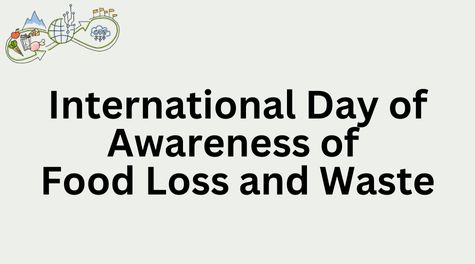IDAFLW encourages us to recognize the importance of our efforts to innovate for a more sustainable future for all.
It is estimated that around 58.4 million tonnes of food waste were generated across the European Union in 2023, of which the food production sector accounted for approximately 21 %. Almost 80 % of total food waste is processed in composting and biogas plants, but there’s potential for innovation to keep waste at a higher value level. Instead of just processing waste, we can upcycle or repurpose food byproducts into products like animal feed, substrate (e.i. growing mushrooms on spent coffee grounds collected from cafes, restaurants, or households), or even edible items (e.i. garum). By focusing on reduction at the source, enhancing food preservation, and creating closed-loop systems, we can minimize waste and retain more value from resources.
Also, Europe welcomes the initiative of FAO and UNEP to dedicate 29 September to the International Day of Awareness of Food Loss and Waste (IDAFLW). The two organizations call for cooperation (Get Involved guide). So, how do we promote IDAFLW in our promising CEFoodCycle project, and what are we doing to reduce food loss and waste?
The CEFoodCycle project is in its fourth phase out of six, which ends on 31 October 2024. So far, we have made significant progress towards achieving the project’s key objectives, including developing the IDLCASS digital system with a new name foodcycle.ai and pilot projects testing circular food cycles in the Alpine region. Beta-testing of an intelligent food life cycle assessment (LCA) tracking system that enables better decision-making to reduce food waste and CO2 emissions is underway in three pilot regions (Piedmont, South Tyrol and Salzburg) of the foodcycle.ai to make it accessible and usable for all key stakeholders in the Alpine region is in progress. Stakeholders can look forward to refined and expanded tool, the establishment of sustainable regional circular food networks and concrete policy recommendations that will contribute to the sustainable development of the Alpine region. The project has also successfully laid the groundwork for Circular Food Hubs in several pilot regions. These hubs are now operational, actively bringing together key stakeholders such as farmers, food processors, retailers, and waste management entities.



